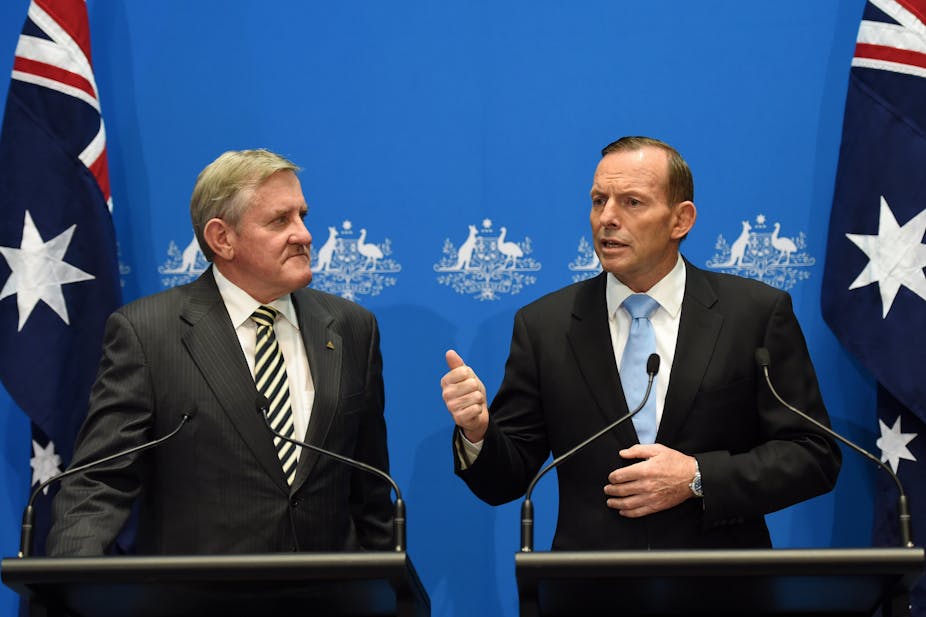The federal government will fund industry growth centres in five sectors that will encourage better use by business of Australian research, as part of a $400 million innovation and competitiveness policy announced today.
The non-profit centres will cover food and agri-business; mining equipment, technology and services; oil, gas and energy resources; medical technologies and pharmaceuticals, and advanced manufacturing sectors.
They will be run by business-led consortia, and will be expected to be self-sustaining after four years. Prime Minister Tony Abbott said the initiative, costing $188.5 million over the forward estimates, aimed to “put science at the centre of industry policy” in these areas.
But he continued to dismiss the need for a separate Science minister, saying Industry Minister Ian Macfarlane performed that role. “The most scientifically successful country on earth is the United States, and they don’t have a secretary of state for science. It’s what you do rather than what you call people that counts.”
Abbott rejected the suggestion the government was “picking winners” in choosing the five sectors, saying “I see it as playing to our strengths”.
“We know that all too often, when governments have tried to pick winners, they’ve done the very opposite. But we do know for a fact that these are very successful sectors and we want to build on that strength.”
The initiative for the centres follows the Business Council of Australia recently calling for the government to promote a sector-based approach that favoured areas where Australia had an advantage, to promote growth and innovation in the economy.
The present co-operative research centres, which in part foster the commercialisation of research, will be overhauled. Some will be folded into the new system, and others will be terminated.
The Prime Minister’s Science, Engineering and Innovation Council – which has not been convened since Tony Abbott came into office - is being replaced by a new Commonwealth Science Council, that will meet at least twice a year, with the PM chairing at least one meeting.
Macfarlane said the government wanted “to take industry away from a dependency mindset and into an excellence mindset”.
As part of its industry policy, the government will also make the 457 visa system more employer-friendly. The process will be streamlined to reward “low risk” applicants and reduce the time and cost to businesses. The sponsorship approval period will be increased from 12 to 18 months for start-up businesses. There will be greater flexibility on English language testing and skill requirements “to ensure that the standards required are appropriate for the industries and occupations being sought”.
The government will invest $12 million to promote science, technology, engineering and maths (STEM) subjects in schools. There will be $500,000 seed funding for an innovation-focussed “Pathways in Technology Early College High School” (P-TECH) pilot program. Abbott visited such a school in New York and was impressed. The model is a school partnered by business with a focus on specialist technology.
The government will change the tax treatment of employee share schemes to encourage start up companies to attract and retain workers and commercialise good ideas. It will also reverse for all companies changes Labor made to the taxing point for options. The cost of the employee share changes is $200 million.
Earlier the government announced reforms to the vocational education and training (VET) system, costing $200 million a year, which aim to lift the apprenticeship completion rates and improve skills.
Abbott said the government would reveal how it will pay for the measures in the mid year budget update in December.
Australia’s Chief Scientist Professor Ian Chubb welcomed the announcement of the Commonwealth Science Council and $12 million investment in STEM education.
Chubb said the council offers the opportunity for Australia to develop a strategic and whole-of-government approach to science, technology, engineering and mathematics.

